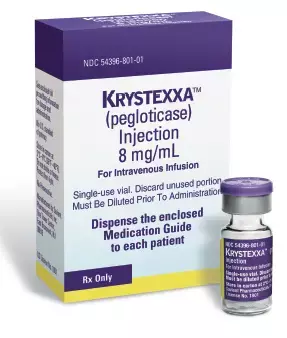- Home
- Medical news & Guidelines
- Anesthesiology
- Cardiology and CTVS
- Critical Care
- Dentistry
- Dermatology
- Diabetes and Endocrinology
- ENT
- Gastroenterology
- Medicine
- Nephrology
- Neurology
- Obstretics-Gynaecology
- Oncology
- Ophthalmology
- Orthopaedics
- Pediatrics-Neonatology
- Psychiatry
- Pulmonology
- Radiology
- Surgery
- Urology
- Laboratory Medicine
- Diet
- Nursing
- Paramedical
- Physiotherapy
- Health news
- Fact Check
- Bone Health Fact Check
- Brain Health Fact Check
- Cancer Related Fact Check
- Child Care Fact Check
- Dental and oral health fact check
- Diabetes and metabolic health fact check
- Diet and Nutrition Fact Check
- Eye and ENT Care Fact Check
- Fitness fact check
- Gut health fact check
- Heart health fact check
- Kidney health fact check
- Medical education fact check
- Men's health fact check
- Respiratory fact check
- Skin and hair care fact check
- Vaccine and Immunization fact check
- Women's health fact check
- AYUSH
- State News
- Andaman and Nicobar Islands
- Andhra Pradesh
- Arunachal Pradesh
- Assam
- Bihar
- Chandigarh
- Chattisgarh
- Dadra and Nagar Haveli
- Daman and Diu
- Delhi
- Goa
- Gujarat
- Haryana
- Himachal Pradesh
- Jammu & Kashmir
- Jharkhand
- Karnataka
- Kerala
- Ladakh
- Lakshadweep
- Madhya Pradesh
- Maharashtra
- Manipur
- Meghalaya
- Mizoram
- Nagaland
- Odisha
- Puducherry
- Punjab
- Rajasthan
- Sikkim
- Tamil Nadu
- Telangana
- Tripura
- Uttar Pradesh
- Uttrakhand
- West Bengal
- Medical Education
- Industry
Pegloticase shows promising results in refractory gout in Kidney transplant patients

Gout is common and more severe in US kidney transplant (KT) recipients, with prevalence >10x higher than in non-transplant patients. A recent preliminary data presented at Kidney Week 2020 Reimagined suggest pegloticase is safe and effective for treating uncontrolled gout in kidney transplant recipients.
Gout is the most common form of inflammatory arthritis in men, and although it is more likely to affect men, women become more susceptible to it after the menopause. The management of gout can be challenging in kidney transplant (KT) patients due to decreased urate-lowering therapy (ULT) clearance and drug-drug interactions. Recent reports suggest that pegloticase, a pegylated uricase approved for treating uncontrolled gout, has improved efficacy and safety when co-administered with immunosuppressive medications (IMM). Researchers of United States of America conducted the PROTECT trial to examine pegloticase use in KT recipients.
It was a Phase 4, multicenter study of pegloticase in adult participants with uncontrolled gout who have undergone kidney transplantation. A total of 15 kidney transplant recipients who had serum uric acid levels of 7 mg/dL or greater or hyperuricemia refractory to other urate-lowering therapies and who had prior or current tophi, 2 or more gout flares within the past year, or gouty arthritis with functioning KT graft (eGFR ≥15 mL/min/1.73m2) were included in the trial. Researchers examined the safety and efficacy of Pegloticase (8 mg q2w for 24 weeks). The major outcome assessed was the percentage of pegloticase responders during Month 6 (sUA <6 mg/dL for ≥80% of the time). All patients had stable doses of 2 or more immunosuppressants (IMM), such as mycophenolate mofetil or tacrolimus. Formation of anti-pegloticase antibodies can decrease treatment efficacy. However, a previous phase 3 trial have shown better treatment outcome when immunosuppression administered along with pegloticase.
Key findings of the trial were:
♦ Over 24 weeks of pegloticase treatment, researchers reported that all 15 patients had a rapid decrease in serum uric acid levels ( <1 mg/dL) with no infusion reaction.
♦ They also reported Patients also had clinically important reductions in pain (Health Assessment Questionnaire [HAQ] pain score decreased by 33.6 points from baseline to week 24) and disability (HAQ-Disability Index decreased by 0.3 points from baseline to week 24).
♦ They observed no notable changes in the estimated Glomerular Filtration Rate (eGFR).
♦ They noted 2 patients with baseline albuminuria of >300 mg/g showed >35% reduction in UACR by week 14.
♦ They reported two Serious Adverse Events (SAEs) (stomach ulcer, cellulitis) which was found to be unrelated to the treatment administered.
The authors concluded, "Early data of this ongoing clinical trial are promising and suggest pegloticase is safe and effective for treating uncontrolled gout in KT recipients. Additional efficacy and safety data are planned".
For further information:
https://asn.scientificposters.com/epsAbstractASN.cfm?id=1
Dr Kartikeya Kohli is an Internal Medicine Consultant at Sitaram Bhartia Hospital in Delhi with super speciality training in Nephrology. He has worked with various eminent hospitals like Indraprastha Apollo Hospital, Sir Gangaram Hospital. He holds an MBBS from Kasturba Medical College Manipal, DNB Internal Medicine, Post Graduate Diploma in Clinical Research and Business Development, Fellow DNB Nephrology, MRCP and ECFMG Certification. He has been closely associated with India Medical Association South Delhi Branch and Delhi Medical Association and has been organising continuing medical education programs on their behalf from time to time. Further he has been contributing medical articles for their newsletters as well. He is also associated with electronic media and TV for conduction and presentation of health programs. He has been associated with Medical Dialogues for last 3 years and contributing articles on regular basis.
Dr Kamal Kant Kohli-MBBS, DTCD- a chest specialist with more than 30 years of practice and a flair for writing clinical articles, Dr Kamal Kant Kohli joined Medical Dialogues as a Chief Editor of Medical News. Besides writing articles, as an editor, he proofreads and verifies all the medical content published on Medical Dialogues including those coming from journals, studies,medical conferences,guidelines etc. Email: drkohli@medicaldialogues.in. Contact no. 011-43720751


